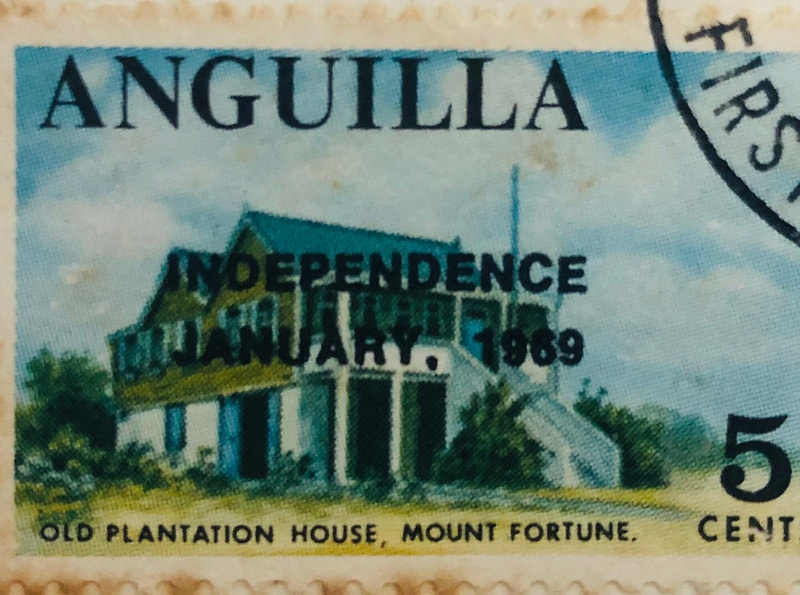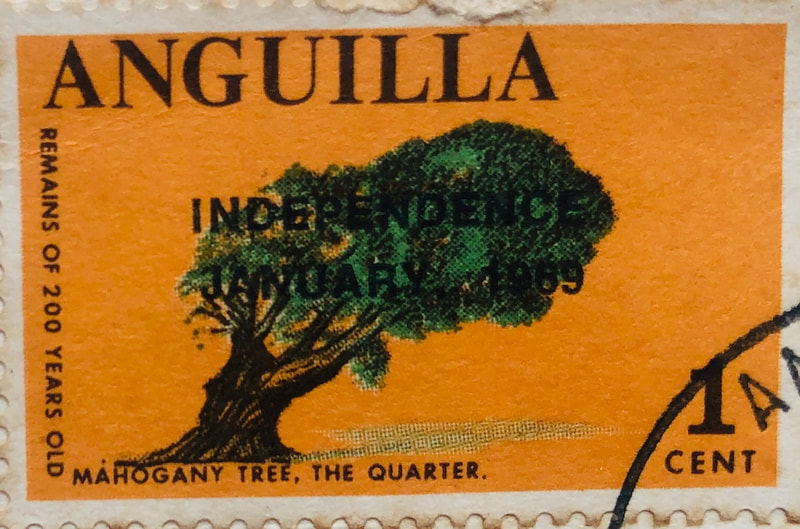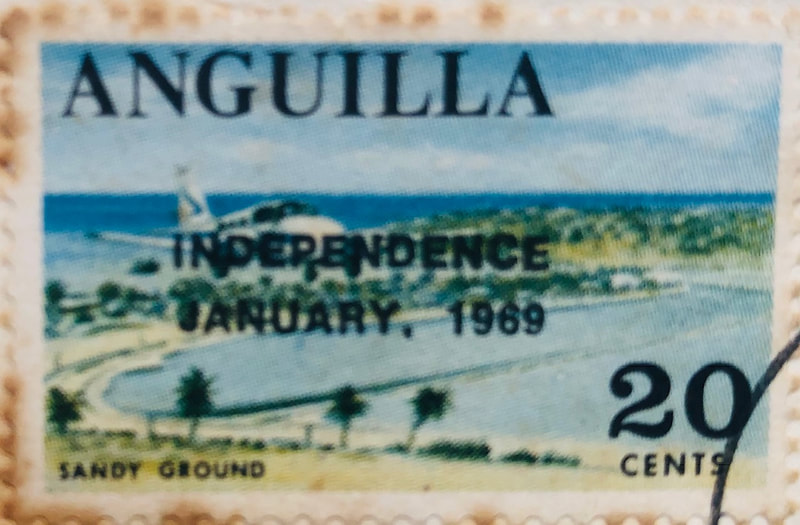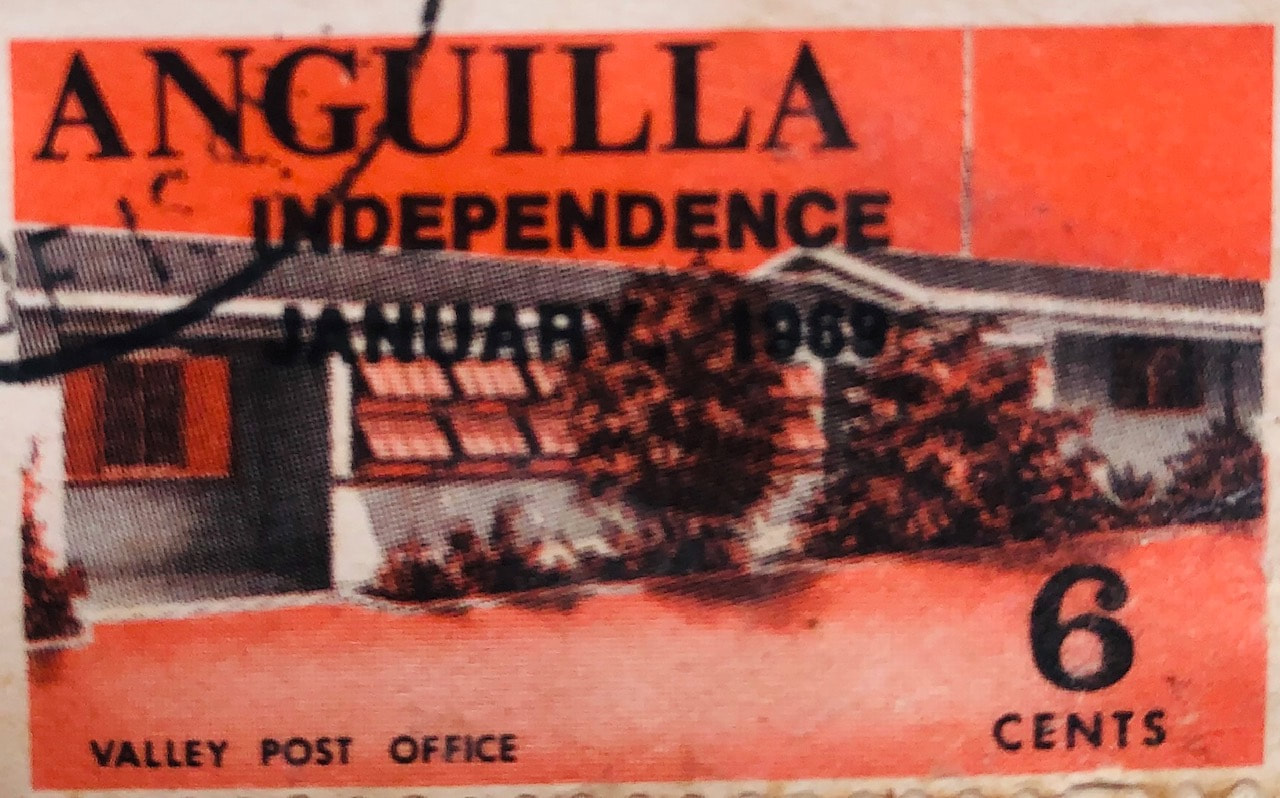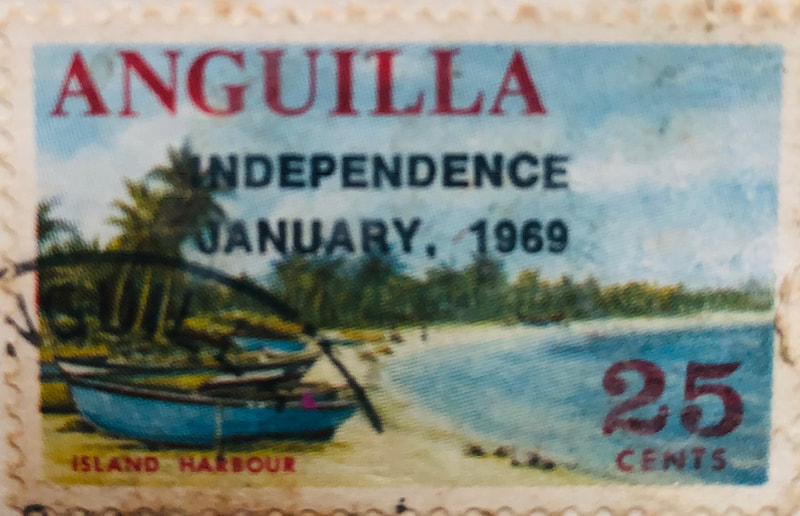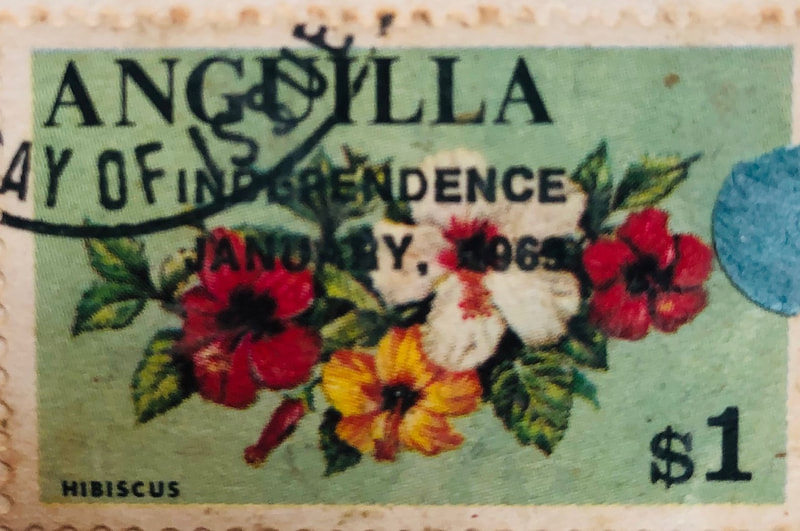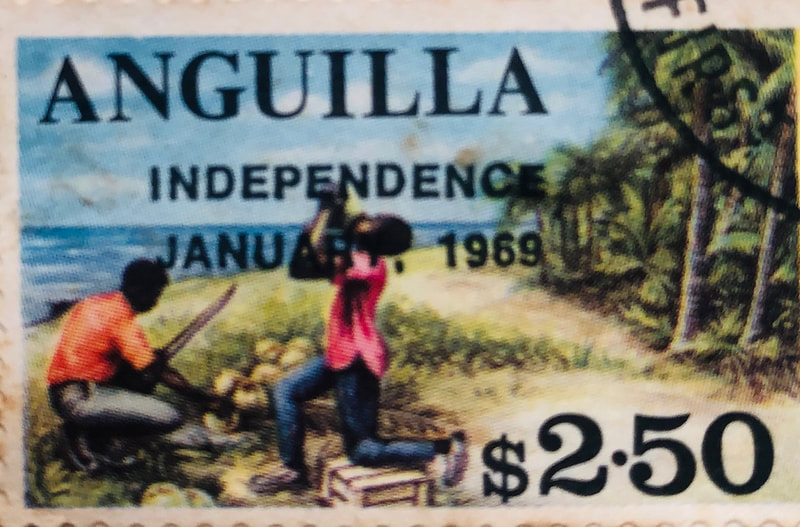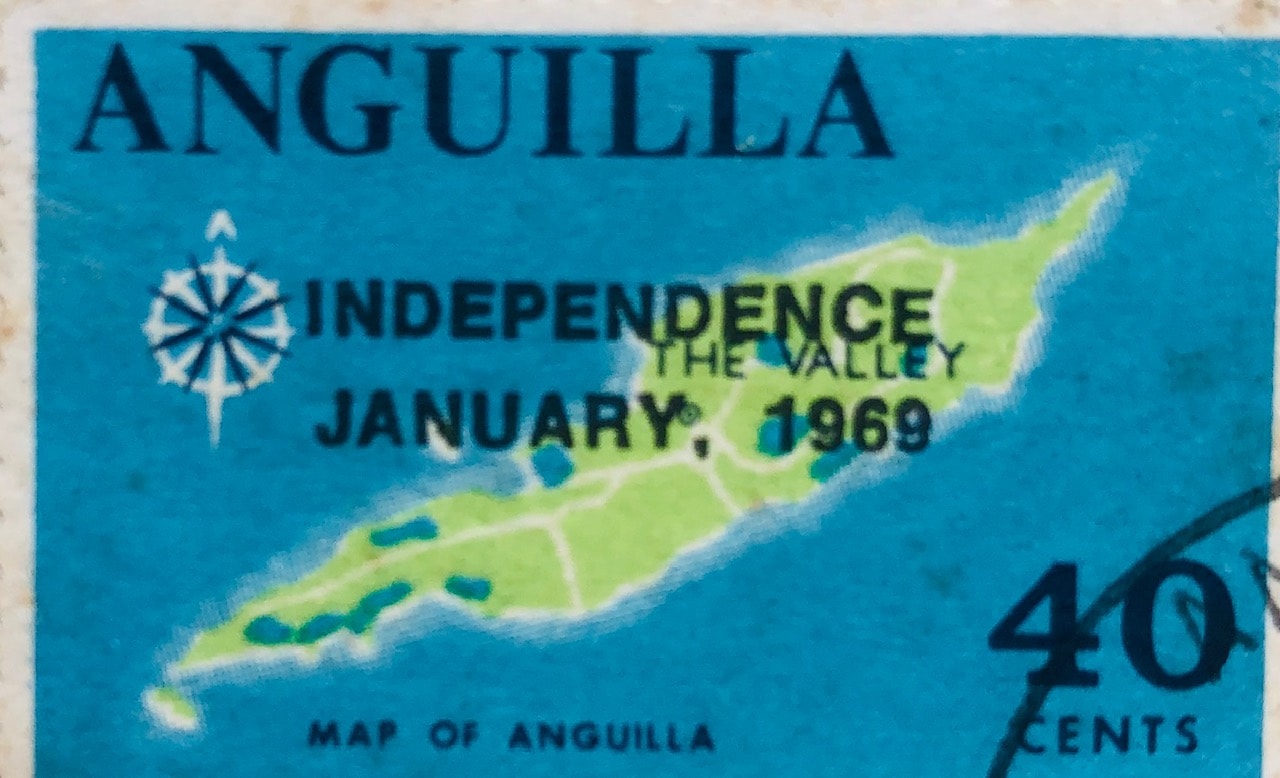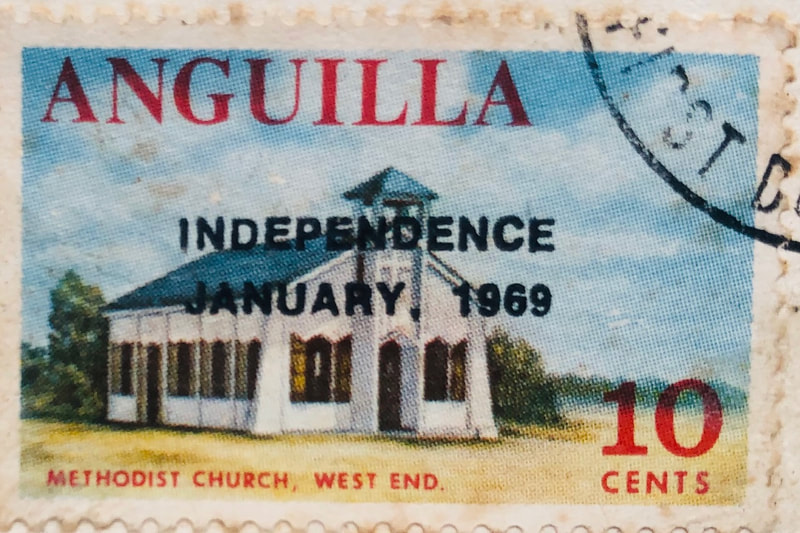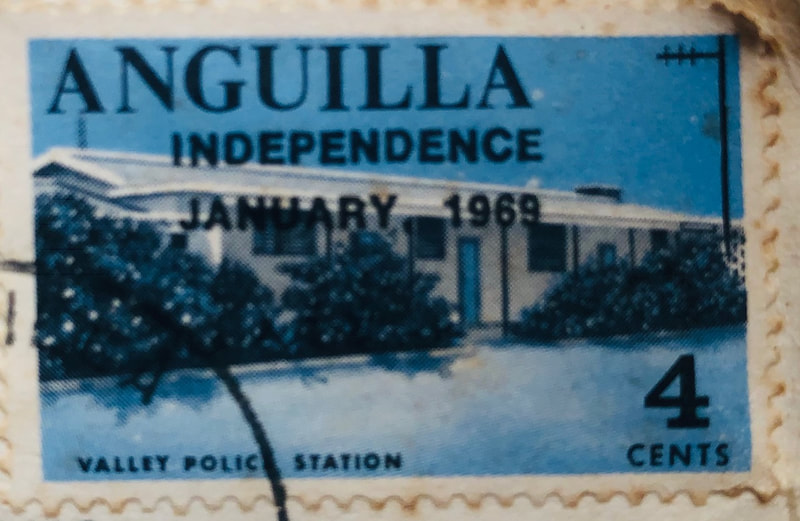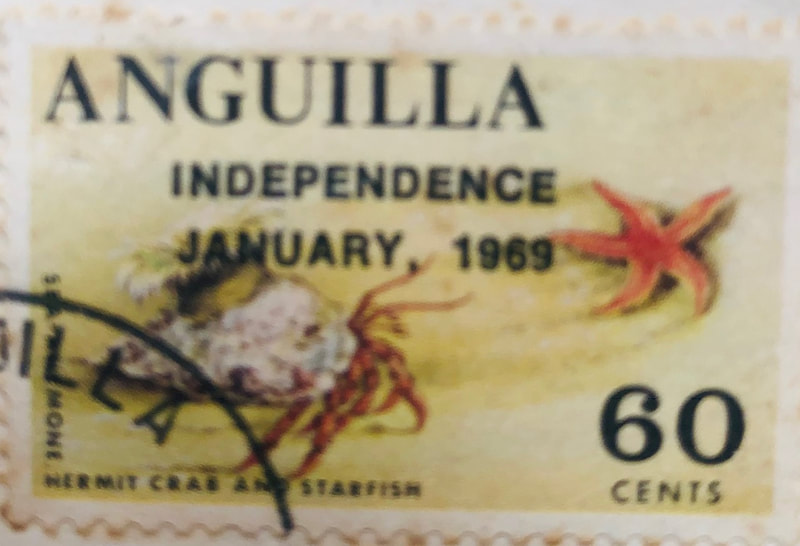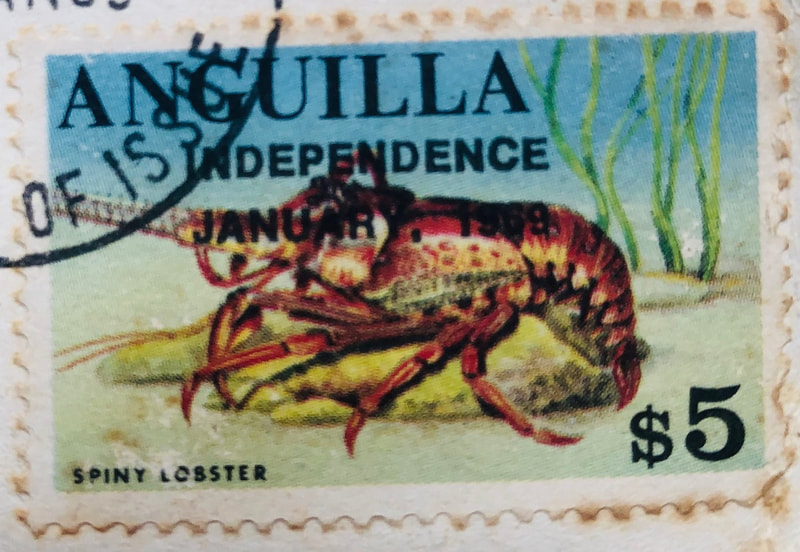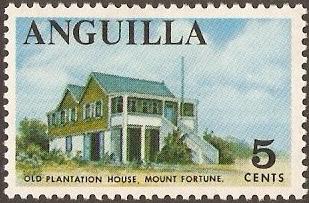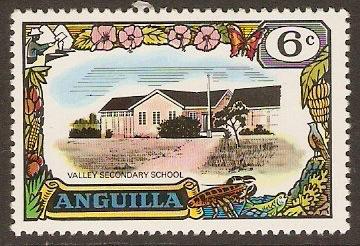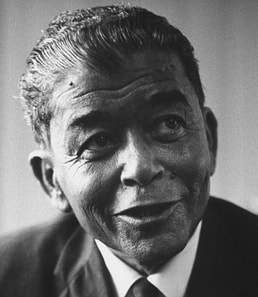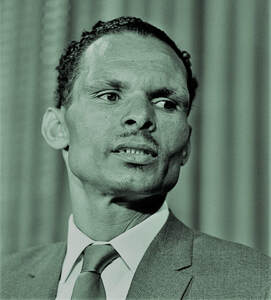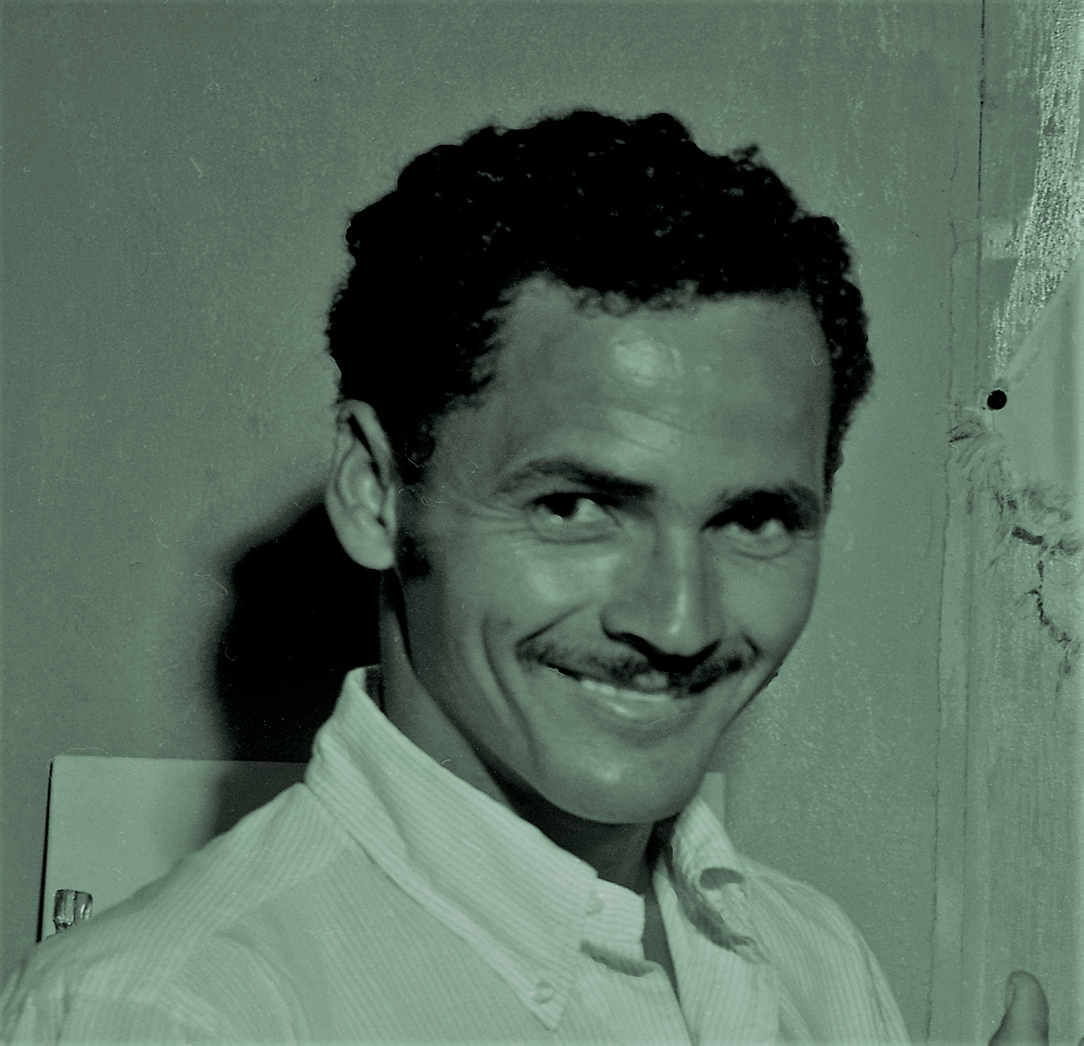Anguilla Revolution 1967
Anguilla in War & Peace 1969
Anguilla’s Double Revolution
by Montague Kobbe
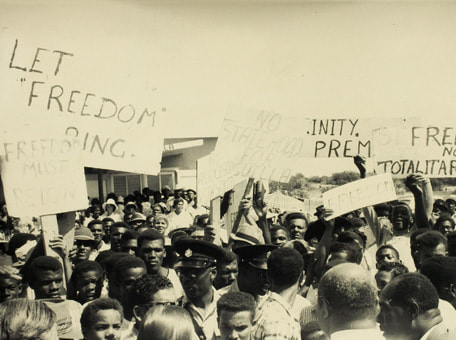
There was a time, however brief, when Anguilla flew its own flag, a time when unity of purpose galvanized the island’s resistance against the irrelevance to which it had been relegated by external forces, a time when Anguilla forewent all prudence and declared itself the world’s smallest republic. It was in the heady days on the 1960s, and at the root of Anguilla’s conflict lay Britain’s neglectful administration of a territory that never had been, really, of any importance to the Crown. All in all Anguilla’s republican experiment lasted 22 months, ending with the military invasion of March 1969, which signalled the island’s return to the British colonial fold – the very thing for which Anguillians had clamoured for generations.
Formally, Anguilla’s discontent began in 1825, when the island’s vestry was essentially absorbed by the St. Kitts Council, but often with issues that have dragged on for centuries the key question isn’t when they first emerged but when they last went unresolved. In the case of Anguilla, the very last missed opportunity came in 1966 after the collapse of the Federation of the West Indies when the British floated the idea of associated statehood, essentially a form of self-government that kept ties with Britain only for defence and diplomatic purposes.
The concept was embraced by Robert Bradshaw, Chief Minister of St Kitts-Nevis-Anguilla and a staunch supporter of the Federation. In May 1966 a constitutional conference took place in London, involving Bradshaw and several other politicians, including Anguilla’s elected representative, Peter Adams. Adams sanctioned the proposals made in the conference and returned to Anguilla to discuss them with his electorate. The outcome was a formal petition in June 1966 for Britain to send a senior official to Anguilla to discuss the possibility of direct rule from the United Kingdom.
This request went unheeded, as did a similar one from October, just four months later: the British could not spare a senior official. They did, however, agree to send a local government expert by the name of Peter Johnston. In the hope of ironing out any lingering misconceptions about the proposed form of government under statehood, Johnston visited all thee islands in January 1967 – just one month ahead of the official creation of the Associated State of St Kitts-Nevis-Anguilla. Click to Read More
Formally, Anguilla’s discontent began in 1825, when the island’s vestry was essentially absorbed by the St. Kitts Council, but often with issues that have dragged on for centuries the key question isn’t when they first emerged but when they last went unresolved. In the case of Anguilla, the very last missed opportunity came in 1966 after the collapse of the Federation of the West Indies when the British floated the idea of associated statehood, essentially a form of self-government that kept ties with Britain only for defence and diplomatic purposes.
The concept was embraced by Robert Bradshaw, Chief Minister of St Kitts-Nevis-Anguilla and a staunch supporter of the Federation. In May 1966 a constitutional conference took place in London, involving Bradshaw and several other politicians, including Anguilla’s elected representative, Peter Adams. Adams sanctioned the proposals made in the conference and returned to Anguilla to discuss them with his electorate. The outcome was a formal petition in June 1966 for Britain to send a senior official to Anguilla to discuss the possibility of direct rule from the United Kingdom.
This request went unheeded, as did a similar one from October, just four months later: the British could not spare a senior official. They did, however, agree to send a local government expert by the name of Peter Johnston. In the hope of ironing out any lingering misconceptions about the proposed form of government under statehood, Johnston visited all thee islands in January 1967 – just one month ahead of the official creation of the Associated State of St Kitts-Nevis-Anguilla. Click to Read More
Click below to read Historical documents and papers.
Freedom Fighters
Peter AdamsHe contested the 1957 elections for a seat on the Legislative Council in
St. Kitts and lost. He was successful in the 1961 and 1966 elections and represented Anguilla at a conference in London, In May, 1966 to discuss a Constitution for the proposed Associated State of St. Kitts-Nevis-Anguilla. Adams went to London, with Dr. William V. Herbert, in February 1967 where he asked for a postponement of Statehood. He was Anguilla's representative on the Assembly in St. Kitts at the time of the 1967 Revolution and consequently became the spokesman of the secessionist movement. It was he who told the officer in charge of the St. Kitts Police that they had to leave the Island on 30th May. Adams was a member of the 1967 Peace-keeping Committee, which took over the running of the Island's affairs, and eventually assumed the title of President. He was a member of the Anguilla delegation to the Barbados Conference but his signing of the unpopular agreement led to his fall from grace. He eventually resigned, under pressure from the Anguillian people, his seat in the House of Assembly in St. Kitts on 23nd August 1967. Adams was subsequently appointed Magistrate but was dismissed in February 1968 because he did not send David Lloyd to jail for contempt of court. |
James Ronald Webster James Ronald Webster is often remembered today as the protagonist of the Anguilla Revolution. One reason for this is that many consider him to have demonstrated the prototypical features of a hero: bravery, sacrifice, conviction, risk-taking, and moral integrity for an honorable purpose. But today, 50 years after the people of the island first rejected its inclusion in the Associated State of St. Kitts, Nevis, and Anguilla, it’s clear that Webster’s influence has extended into a much wider realm. His example has assisted in the preservation and propagation of one of Anguilla’s most valuable resources, a strong collective identity. In this manner, he, like other national heroes, still impacts how people mold and interpret the world. He does so through contemporary political realities often taken for granted, through memories and passed down through the generations, and through narratives that are put to the page to become history. Read More.
|
Atlin N Harriganleader of the Anguilla Revolution, editor and founder of The Beacon, and Speaker of the Anguilla House of Assembly, was born in Island Harbour, Anguilla on December 8, 1939. The fourth of ten children, his parents were Mary Alberta Webster, a homemaker, and Fredrick Osborne Harrigan, a fisherman, businessman, and highly respected community leader.
Read More |
|
Edward Duncan
He was an activist and a stout-hearted freedom fighter. He spent many nights guarding the beaches to prevent any attempt by St. Kitts to land troops on Anguilla. He was part of the group which expelled William Whitlock, a British Junior Minister, from the Island on 11th March 1969. As a matter of fact, it was Edward who fired the shot (from the Office Hill) which warned Whitlock that he had overstayed his welcome. Edward, who was always helmeted, was at the forefront of almost every demonstration against the British invasion of l9th March 1969. |
Charles (Charlie) Fleming
He was a member of the 1967 Peace-keeping Committee and a candidate for the elections which were scheduled for 25th October 1967 but later withdrew his name. He became a member of the Advisory Board to the Anguilla Council in 1968. Fleming was elected unopposed as a Senior District Representative to sit in the Island's bicameral legislature provided for in the 1969 Republican Constitution. He was named by the APP (Anguilla People's Party) as its candidate to contest the 1984 elections in West End but withdrew because his selection was unpopular. |
|
Fred Fleming
He fought the St. Kitts Police, on the night of 4th February 1967. when the Queen Show at the Valley Secondary School was disrupted. |
Lewis Haskins
His engineering skills were exploited to the fullest in the maintenance and repair of Anguilla's "military hardware". He was a member of the Advisory Board to the Anguilla Council in 1968. |
|
Collins 0. Hodge
He was one of the principal agitators for secession and a leader of the Anguilla Revolution. He was outspoken and one of the more militant leaders. He became a member of the Anguilla Council on 17th October 1967 and on 17th July 1968 after his seat was uncontested in the elections scheduled for those dates. Hodge ran as an Independent candidate in the 1972 elections and lost. Edwin Wallace Rey
He was among the foremost leaders of the Anguilla Revolution. He helped with the blocking of the runway to prevent the landing of police reinforcements from St. Kitts and spent many nights guarding the beaches. Rey was a member of the 1967 Peace-keeping Committee and won a seat on the Anguilla Council on 17th October 1967 when the elections scheduled for that day were uncontested. He defeated Clement Daniels in the Electoral District of Valley South in the 1968 elections. He was an independent thinker, an orator-a radical politician who found it most difficult to accept compromise in Anguilla's bid for greater autonomy. He was never afraid to voice his dissension over any matter which he thought not to be in the best interest of the Anguillan people. Rey was a strong critic of British Government policies towards Anguilla. He once said that "Britain had bribed Anguillians in the past" but that Anguillians would no longer "bite at everything" would no longer live on "Pie Crust Promises". He was among the radical leaders who engineered Anguilla's declaration as an Independent Republic on 6th February 1969. Rey retained his seat on the Anguilla Council following the 1972 elections. He was a member of the Anguilla delegation which went to London in May 1975 to discuss a new constitution for Anguilla. He ran as an Independent candidate in the 1976 elections and lost. Read More |
Kenneth Hazell
He won a seat on the Legislative Council in St. Kitts during the 1957 elections. His election was a turning point in the worsening of relations between Anguilla and St. Kitts. Hazell spearheaded the 1958 petition for separation from St. Kitts and from that time onwards there was a recognizable militancy among the Anguillian people. He lost his seat to Peter Adams in the 1961 elections. Hazell became a member of the Anguilla Council on 17th July 1968 after his seat was uncontested in the elections scheduled for that day. He was not supportive of Anguilla's declaration as an Independent Republic. Hazell was a Vice President of the Anguilla Constructive Democratic Movement (ACDM) formed in April l969. Vincent Webster
He was one of the two Anguillians whose blood was shed for the Anguillian cause. He was wounded in the leg by a bullet from the St. Kitts Police, on the night of 4th February 1967, when the Queen Show at the Valley Secondary School was disrupted. Vmcent, who was captured by the Police the following day, was tried and found guilty of several charges and sent to St. Kitts where he spent six months in prison. John A Webster
He was one of Ronald Webster's principal advisers. He was in charge of the Island's small Defence Force and was sworn in as Defence Secretary in January 1968. He was named to fill the post of Secretary of State for Domestic Affairs for the Independent Republic of Anguilla. John later held the post of Administrative Secretary in the Anguilla Public Service until his retirement. (He was nicknamed "Coffee John" by the civil servants because of his love for coffee.) He contested the 1976 elections and lost. |
|
Constance Proctor
A staunch supporter of the Revolution and a habitual demonstrator for Anguilla's freedom. |
Christopher Glasgow
A staunch supporter of the Anguilla Revolution. He later became a member of the Anguilla Police Force. |
|
Whittington Hodge (Witty) of East End
He was a fearless freedom fighter and was one of the men who went to St. Thomas to get guns and ammunition for the Revolution. Witty was also one of the men who, on the night of 29th May1967, shot at Albert Lake's premises before going on to attack the Customs House in The Forest. |
Reuben Hodge
He was co-opted to the Anguilla Council in 1969. He represented the Electoral District of Valley North on the new Anguilla Council when he won his seat in the 1972 elections. Hodge is remembered by most civil servants as the Councilor who called on the British to send in a battleship to crush their strike in 1974. He declared: "I don't care two cattle huffs." |
|
Wallace Richardson
He was a member of the 1967 Peace-keeping Committee, the Advisory Board to the Anguilla Council of 1968 and later a member of the Public Service Commission. |
Thomas Ryan
He was one of the freedom fighters. He spent many nights guarding the beaches to prevent the landing of troops from St. Kitts. Sergeant Ryan was the officer in charge of the revolutionary Police Force of 1967-69. |
|
Matilda Duncan
A staunch Supporter of the Revolution and a habitual demonstrator for Anguilla’s Freedom |
Ashley Carty
He was one of the freedom fighters. He spent many nights guarding the beaches to prevent any attempt by St. Kitts to land troops on Anguilla. He subsequently became a member of the Anguilla Police Force and at the time of his retirement from the Public Service held the post of Prison Keeper. |
|
Canon Guy Carleton
He was an adviser to the revolutionary leaders and assisted Atlin Harrigan with the production of The Beacon, the Island's first newspaper. He wrote several letters in support of the Anguilla cause to newspapers in England. He also lobbied members of the British Parliament on behalf of Anguilla. |
James Beard
He was a mem her of the Peace-keeping Committee. He was a leading citizen and a businessman. Beard served as a member of the Social Security Board, the Anguilla Development Board and the Public Service Commission. |
|
Wallace Richardson
He was a member of the 1967 Peace-keeping Committee, the Advisory Board to the Anguilla Council of 1968 and later a member of the Public Service Commission. |
Adolphus Babrow
He was a staunch supporter of the Anguilla Revolution. On 30th May 1967, he used his truck to block a road to prevent a jeep with St. Kitts policemen from returning to Police Headquarters. |
